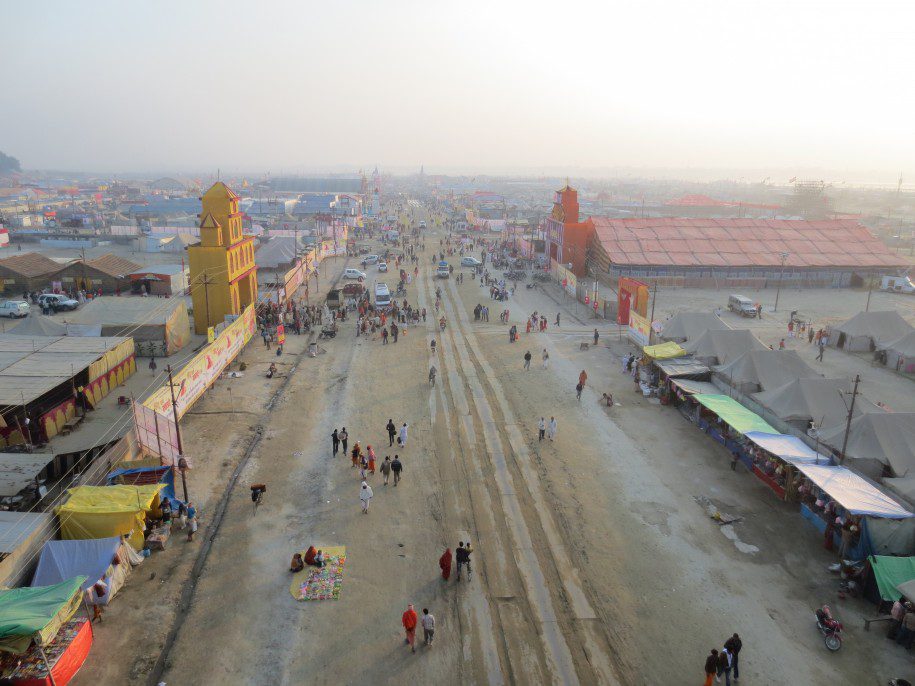Mobile Technology
Spurring social and economic enterprise in emerging marketsBackground
The Mobile Technology project was part of greater research at the Kumbh Mela. The Mapping the Kumbh Mela research project brought together faculty, students, and administrators from Harvard with Kumbh Mela planners and government officials involved in the planning and production of the largest religious gathering in the world. The research project provided powerful insights for further research and teaching on understanding social networks and behavior through studying large data gathered from cell phones used at this mass gathering. The research through cell phone data has spurred interest in exploring this nascent area of analyzing big data among several faculty from the Kumbh project.
When approached through technology that has the ability to secure vast amounts of information from unimaginably large data sets, the impact of such a study has far greater relevance to understanding and addressing critical issues common to developing countries. For example, cell phones are being used for banking and commerce, for health diagnostics, health care delivery, and more.
Four separate projects were taken up as part of the business focus of the Mapping India’s Kumbh Mela Project, sponsored by the Harvard Business School.
This project acquired permission from one of India’s largest telecommunications company to have access to cell phone data from the Kumbh. It involves the compilation of a large mobile phone usage (voice and text messages) dataset and the creation of a new breed of platform to support the gathering of data from cell phones and other mobile devices which relates to human social behavior and which can be used to shed new light on social and socio-environmental phenomena.
Such data could be used by epidemiologists to study disease vectors in new ways, planners to design transportation improvements, and environmentalists to look at human impacts, or by anyone interested in organization of large-scale social systems. The dataset, expected to total billions of call and text records, will provide new perspectives from which to study, in a quantitative way, this so-called Pop-Up Mega City, with its own special dynamics in terms of infrastructure, food, waste, health, transportation, communications, and human mobility flows.
The Team:
J.P. Onnela, Biostatistician, Harvard School of Public Health
Tarun Khanna, Director of the South Asia Institute and Jorge Paula Lemann Professor, Harvard Business School
Todd Mostak, Researcher, Harvard Center for Geographic Analysis and MIT

